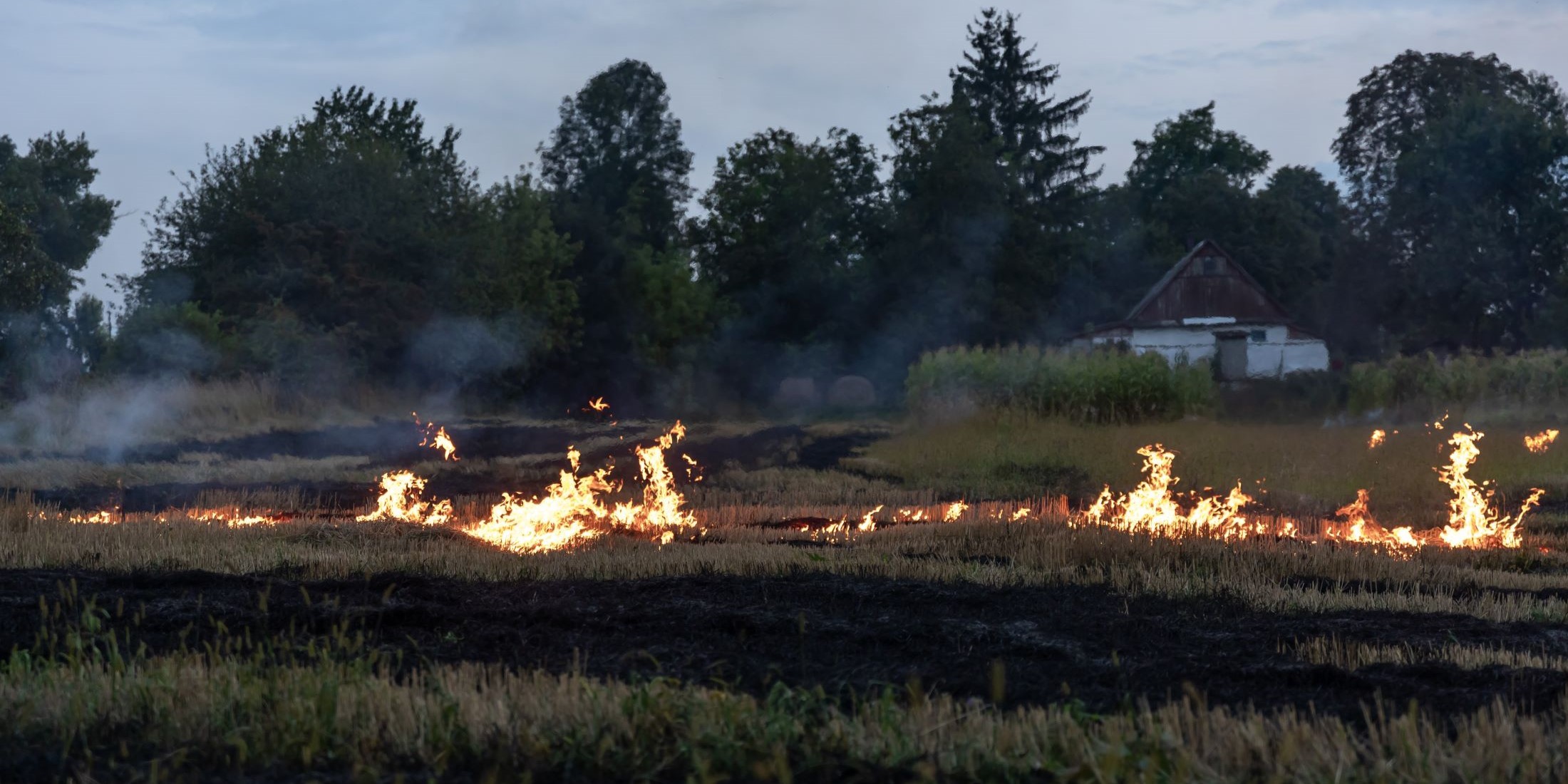
Earlier this month (April 2024), Long Point Conference Centre hosted the Rural Fire Service (RFS), who utilised our conference venue for informative meetings and training. Indoor sessions took place in the multi-media auditorium, which features projectors, customisable lighting, a professional sound mixer, microphones and more, providing the RFS with the equipment they needed to have a successful meetup.
The RFS volunteers continue to put in a tremendous effort to protect the Long Point community, which is surrounded by native Australian bushland. We look forward to welcoming them back again and thank them for their ongoing efforts.
Read on to learn about the Rural Fire Service, including their history, purpose and how to become an RFS Volunteer.
History of the NSW Rural Fire Service
The NSW Rural Fire Service (RFS) traces its origins back to the late 19th century when coordinated firefighting efforts were virtually non-existent, leaving landowners to fend for themselves against bushfires. The first formal rural firefighting brigade was established in Berrigan in 1900, marking the beginning of organised efforts to combat bushfires in NSW. Over the years, legislation was introduced to address fire prevention and suppression, culminating in the 1949 Bush Fires Act, which provided greater powers to local councils and established funds for firefighting equipment.
The 1950s and 1960s saw devastating fires, including the significant blazes in the Blue Mountains and Snowy Mountains regions. In response to these events, the Bush Fires Act was amended in 1970, leading to the creation of the Bush Fire Council and the appointment of a Chief Coordinator of Bush Firefighting.
The following decades saw continued growth and development within the RFS, with the establishment of comprehensive training programs and legislative amendments aimed at improving firefighting capabilities. In 1997, the Rural Fires Act was proclaimed, officially establishing rural fire districts and the NSW Rural Fire Service as a unified organisation with a single chain of command.
In the early 2000s there were further enhancements to firefighting capabilities, including the adoption of technology such as the ‘Fires Near Me’ app and the acquisition of firefighting aircraft. The RFS faced its toughest challenge yet during the 2019/2020 bushfire season, known as ‘Black Summer,’ which resulted in unprecedented destruction and loss of life. Despite the challenges, the RFS continued to adapt and evolve, with Deputy Commissioner Rob Rogers assuming the role of Commissioner in 2020.
Today, the NSW Rural Fire Service stands as the world’s largest volunteer firefighting organisation, comprising over 71,000 dedicated volunteers and staff who work tirelessly to protect communities across the state from the threat of bushfires.
You can read more about their interesting history here.
Fire and Rescue vs Rural Fire Service
Fire and Rescue NSW (FRNSW) and the Rural Fire Service NSW (RFS) are two separate agencies, responsible for different aspects of firefighting and emergency response.
FRNSW focuses on urban firefighting and rescue operations, while RFS specialises in bushfire management and response in rural and regional areas. Below is a more detailed summary on their unique roles.
What Does Fire and Rescue NSW (FRNSW) Do?
- FRNSW is responsible for urban firefighting and emergency response within cities, towns and metropolitan areas.
- They primarily handle structural fires, motor vehicle accidents, hazardous material incidents and other emergencies that occur in built-up areas.
- FRNSW firefighters are professional, paid personnel who work in shifts and are stationed at various fire stations across urban areas.
- Their operations often involve specialised equipment and techniques tailored to urban firefighting and rescue scenarios.
- FRNSW works closely with other emergency services such as police and ambulance to ensure coordinated responses to emergencies.
What Does the Rural Fire Service (RFS) Do?
- The RFS is responsible for bushfire management and response in rural and regional areas of New South Wales.
- They focus on combating bushfires that occur in forests, grasslands and remote areas, as well as providing support during major emergencies such as floods and storms in rural communities.
- RFS personnel are primarily volunteers, although there are also paid staff who provide administrative and operational support.
- Their operations involve a combination of firefighting, hazard reduction, community education and coordination with other agencies to manage fire risks.
- The RFS often uses a network of volunteer brigades located in rural communities, supported by specialised equipment designed for bushfire suppression and prevention.

Why Do People Volunteer For the RFS?
Individuals become RFS volunteers for a wide range of reasons, some common ones being:
- To protect families, friends, properties and communities.
- To learn valuable skills for both the firefighting role and daily life.
- To meet new people from diverse backgrounds.
- To contribute to a good cause during spare time.
- To give back to the community.
- To build lasting friendships.
Minimum Age to Join the RFS
How old do you have to be to become a volunteer firefighter in NSW?
Individuals must be a minimum of 18 years old to apply, although those aged 16 or 17 can also submit an application with consent from a parent or guardian. Some stations offer cadet programs for children 12 years and older. Info on the junior membership is available here.
Are RFS Volunteers Protected from Legal Liability?
NSW RFS members have legal protection when engaged in firefighting or other authorised activities according to the Rural Fires Act 1997. Moreover, they are covered by the Workers Compensation (Bush Fire, Emergency & Rescue Services) Act 1987 for any injuries sustained during brigade activities.
What Do you Receive as an RFS Volunteer?
As an RFS volunteer, you will receive:
- free training and education.
- nationally accredited qualifications.
- flexible training options (including manuals, workbooks and online resources).
- personal protective clothing and equipment.
- lots of experience.
- support services, available for you and your family.
How to Become a Volunteer Firefighter in NSW
The process to becoming an RFS volunteer is roughly as follows:
- Decide on the type of volunteer work you want to do and how much spare time you have.
- Contact your local rural fire brigade or Fire Control Centre.
- Complete the Volunteer Membership Application Form and National Police Checking Service Consent Form if over 16.
- Attend an interview with the brigade to discuss role expectations and NSW RFS requirements.
- Your application is sent to the District Manager for endorsement, becoming a “probationary member pending clearance”.
- A criminal history record check is conducted for suitability assessment.
- Commence supervised activities with the brigade while awaiting clearance.
- Receive a membership number upon successful application.
- Participate fully as a volunteer member upon clearance.
- Undergo free training to gain necessary skills.
- Receive appropriate clothing and equipment for role.
- Remain a probationary member for a minimum of six months.
- Brigade votes on acceptance as an ordinary member at the end of the probationary period.
RFS Jobs in NSW
The main jobs available at the RFS are:
Some important RFS jobs in these categories include:
- Administration
- Communications
- Catering
- Community education
- Community engagement
- Training
- Operational logistics support
- Welfare support
- Equipment maintenance.
Where are the RFS Headquarters?
The RFS headquarters are at the following address: 4 Murray Rose Avenue, Sydney Olympic Park NSW 2127.
- Postal address: Locked Bag 17, Granville NSW 2142
- Telephone: 02 8741 5555
- Fax: 02 8741 5550.
